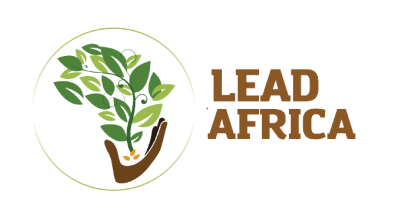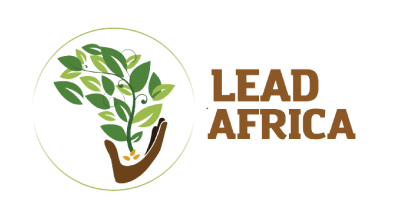
Close

Mentoring is a process that helps individuals optimise their leadership potential, learn to solve problems and create paths to success. Every leader, regardless of size, age, gender, or social background, benefits from having a mentor. Mentors guide them through their leadership journeys and serve as sounding boards, offering valuable insights for decision-making.
Africa has long been known for its challenges with leadership. Lead Africa believes that the continent can experience a new dawn of hope, vision, purpose, and transformation by supporting and intentionally developing leaders through mentorship. This mentorship program is designed to change the negative narrative, provide a platform for leaders to understand their people’s needs, and craft innovative solutions to address these challenges.



Through this program, participants will have the opportunity to meet and interact with seasoned mentors from various fields and industries. Mentees will learn and grow together, benefiting from the mentors’ experiences, wisdom, and knowledge. Mentors will also share their networks, helping mentees to expand their professional connections.
This program aims to Inspire, Empower and Equip leaders across Africa to become Transformational change agents and leadership catalysts in their spheres of influence who will be qualified to develop others through a transfer of skills, knowledge, wisdom and expertise gained over time from their life’s journeys and experiences.
We invite you to join us as we learn, unlearn, and forge new paths that will transform leadership across the continent. By participating in this program, you will be part of a movement dedicated to nurturing leaders who can drive meaningful change and create a brighter future for Africa.
MODE OF DELIVERY
Hybrid (Online & In person)
DURATION
10 Weeks
METHOD OF LEARNING
The lessons will be delivered through insightful and provocative talks, weekly readings and assignments, group discussions, action plans, and reviews based on the Mentoring book.
To achieve the best outcome of the mentoring relationship, the mentor and mentee must be on the same page. This is achieved through a well-articulated process of getting to know the mentee’s needs. The mentor, as a guide and resource, and the mentee, as an active learner, will establish not only their individual needs and goals but also the needs, goals, and expectations of the mentoring partnership. Both will agree on a plan.
The session will cover the following:
How one defines mentoring will determine how one practices mentoring. In this session, we will explore several definitions of mentoring, dive deep to understand them, and then arrive at an agreed-upon common understanding.
The session will cover the following:
This session will set the building blocks of a meaningful and successful mentoring relationship by looking at the ‘software’ of mentoring, which includes trust, respect, and open communication. We will then explore how these intangible aspects translate to the responsibilities of mentoring, such as active listening, providing constructive feedback, and setting clear expectations.
The session will cover the following:
In this session, we will explore the accrued benefits for the mentee and mentor, such as personal and professional growth, expanded networks, and increased self-confidence. We will also examine how individuals and organizations benefit from mentoring systems, including improved job satisfaction, higher retention rates, and enhanced leadership development. Mentoring flourishes in an environment where both the mentor and mentee have the right mindset and are committed to the process.
The session will cover the following:
In this session, we explore some of the challenges, possible causes, and pitfalls of mentoring. But remember, you are not alone in this journey. We will also see how to overcome these difficulties through expectations, goals, roles, and responsibilities, providing you with the support and guidance you need to succeed.
The session will cover the following:
Checkpoint is the midpoint of the Mentoring Program. Checkpoint offers an opportunity to reflect on the journey travelled thus far and milestones, challenges, and wins. At this Point, it is also time to agree on areas of improvement so that the next half is more fruitful.
The session will cover the following:
Quite often, the terms mentoring and coaching are used interchangeably or, in other cases, synonymously. However, these two concepts are distinctively different. We look at the differences between them.
The session will cover the following:
We recognize life is lived in seasons, and each season has dynamics and issues of the particular dispensation that require wisdom and practical examples from those who have travelled the road before to share through mentoring.
The session will cover the following:
Transition and Succession require careful planning and the development of systems and structures that ensure the smooth passing on of the baton from one leader to another.
The session will cover the following:
Preparing for the end is essential about two weeks before the end of the mentoring program. An excellent point to consider is how the transition from a formal to an informal mentoring partnership or coaching can work.
The session will cover the following:
The final review is an instrument to identify the gains. The objectives are to discuss the completion of the program and examine what you have learned through the process.
Questions/thoughts to facilitate discussions about experiences, learning and ending the sessions may include:
Lastly, consider how mentees and mentors can reflect on the experience and determine individual goals based on their learning. The mentees may consider becoming mentors, and the mentors may want to engage with another group of mentees, building upon the lessons learned in the recently completed one.
In this section, we will guide mentors and mentees through a post-program reflection and goal-setting process, encouraging them to reflect on their experiences, identify their strengths and areas for improvement, and set actionable goals for their future development. By fostering a culture of continuous learning and improvement, mentors and mentees can continue their growth and development beyond the program.
Kingston Ogango, MOL

